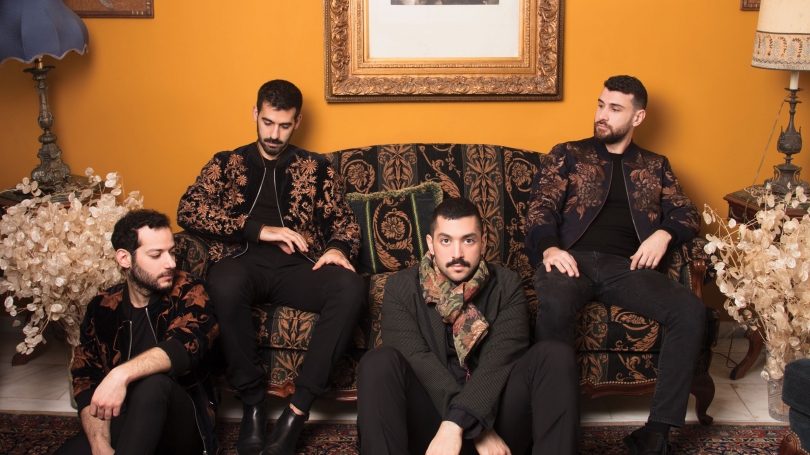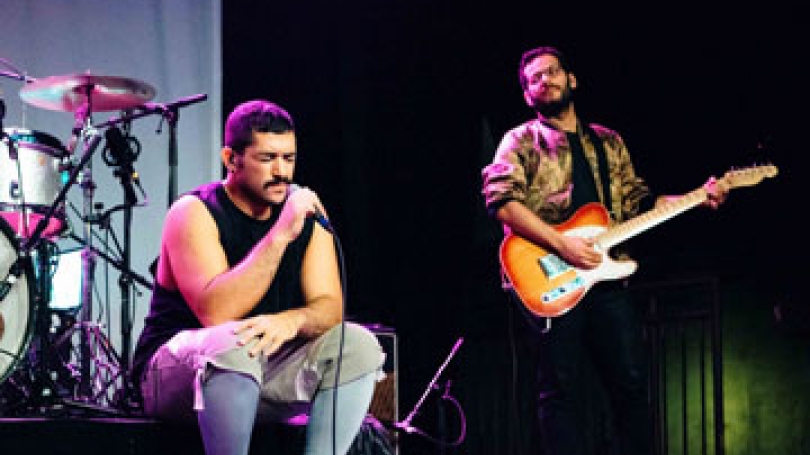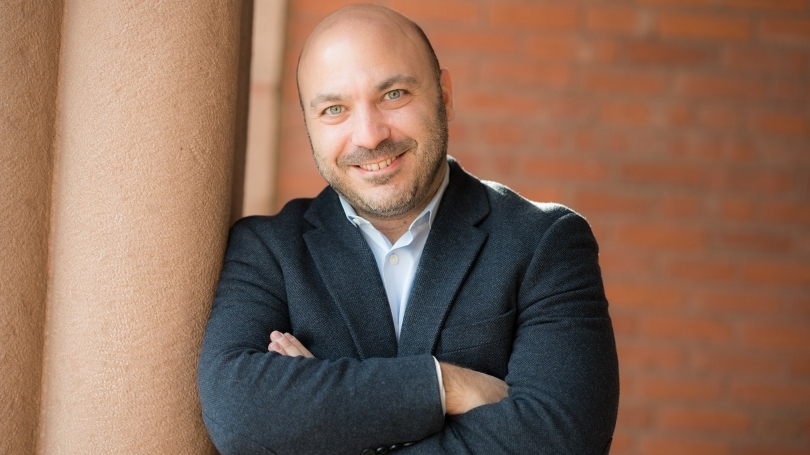Mashrou' Leila: Connecting Beyond Words
August 30, 2019—To move past Middle Eastern headlines and stereotypes, one need look no further than the band Mashrou' Leila, performing at the Hop on September 28.
"Mashrou' Leila's concerts and songs are very politically aware, and their lyrics make statements about women's rights, LGBT rights—and obviously this doesn't go over very well in some parts of the world," said Dartmouth Middle Eastern Studies Professor Tarek El-Ariss, who has known the band since it formed 10 years ago at American University of Beirut and is involved with bringing them to Dartmouth. He teaches their music in his courses and, while leading this summer's Arabic language study-abroad program in Morocco, brought students to one of the band's concerts.
"They have a huge following both in the Arab world and abroad," El-Ariss said. "For a band that sings in Lebanese dialect to become world-renowned—it's amazing. They are doing something very interesting—it's a perfect fusion of Arabic and indie rock and LGBT issues and women's rights that comes together so organically, that's from the Middle East but also in such dialogue with the world, with the global context. And I love their music. I think it's beautiful and moving. It's really an experience to watch them in concert. They throw a great show."
El-Ariss's LSA students also got to see Mashrou' Leila weather one of its periodic brushes with the authorities when a recent concert in Lebanon was cancelled due to threats of violence from religious fundamentalists who accused the band of sacrilege. This time the outrage was from Christians, rather than Muslims—"for a change," said El-Ariss. While the incident cut the band off from a public they care passionately about, it also sparked lead stories on NPR and in the New York Times—nice timing as they undertake a major US tour.
While the band's lyrics and message are vital to the young Arabic-speaking world, Mashrou' Leila also reaches people on a nonverbal level, El-Ariss said. "A student came to me, an undergrad, an American, who was studying Arabic, and he said, 'Listening to Mashrou' Leila in high school made me want to learn Arabic.' So for me this was, wow—so [his motivation] isn't politics, it's not 9/11, its not ISIS—it's art, it's music, it's people who manage to get their music across, and even for people who don't understand the language. They were able to communicate something that made some kid in the New York area want to go and learn Arabic, because he was moved, he understood that there was something that communicates beyond the language barrier. Ultimately, this is really what I want—for the audience here to have that experience." He quipped, "I don't know if we're going to have enough Arabic classes to accommodate everyone after this!"


